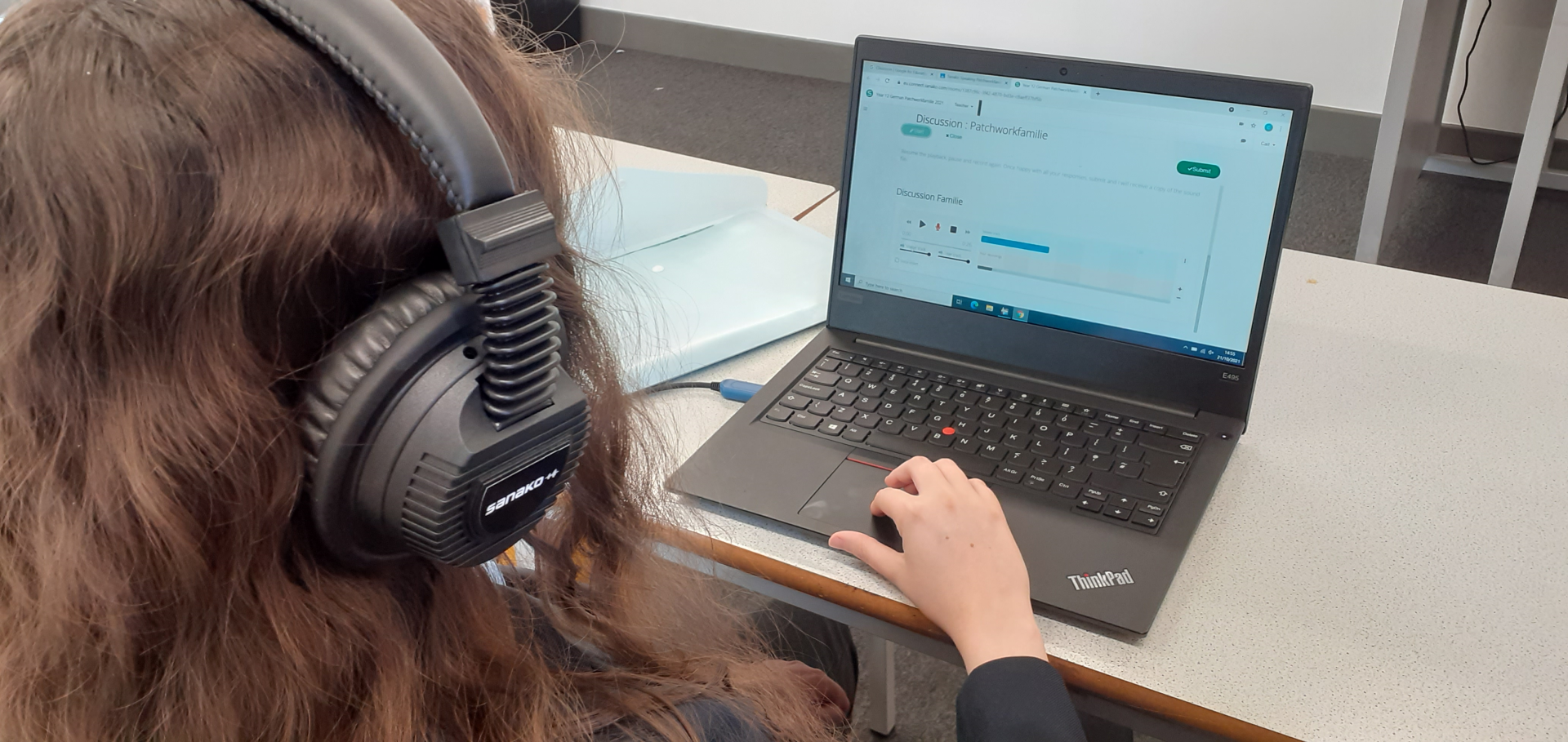Unlocking Language Proficiency:
The Crucial Role of
Pre-Listening Activities

In the journey of mastering a foreign language, listening comprehension is a key element of proficiency. Whether it's grasping the nuances of a conversation, understanding a podcast, or enjoying a piece of music, the ability to comprehend spoken language is paramount.
However, achieving proficiency in listening comprehension requires more than just passive exposure to the language. Many students are fearful of listening, and can be disheartened when they listen to something but feel they understand very little. It is also harder to concentrate on listening if you have little interest in a topic or situation.
Pre-listening activities serve as the groundwork for effective listening comprehension. They prepare learners by activating their prior knowledge, introducing key vocabulary, and fostering anticipation for what they are about to hear. By engaging learners in activities that pique their interest and provide context, teachers can lay a strong foundation to support their students’ listening comprehension skills.

One of the primary benefits of pre-listening activities is the activation of schema. Schema refers to the background knowledge and experiences that individuals bring to the learning process. By tapping into learners' schema through activities such as brain dumps, discussion prompts or visual aids such as photos and short media clips, we help students make connections between what they already know and the upcoming listening material.
This not only enhances comprehension but also fosters a deeper understanding of the content. For example, in some Spanish A Level resources that I am currently creating for Sanako Connect, before an activity where students will hear about women’s rights in Latin America, they see this photo to provide a context and stimulus.

Pre-listening activities offer an opportunity to introduce and reinforce vocabulary relevant to the listening task. Vocabulary preview exercises, word matching games, or context-building discussions enable learners to familiarise themselves with key words and phrases, equipping them with the linguistic tools necessary for successful comprehension. By establishing a lexical framework beforehand, we can empower learners to navigate the listening material with confidence and accuracy.
Sanako Connect online, powered by AI, allows you to quickly create a series of activities to practise key vocabulary, such as the ‘Flashcards’ activity here where students type the meaning of the word or phrase (you can change whether this is from or into the target language).
Matching pairs activities such as this one can help to reinforce this vocabulary knowledge, to help it to ‘stick’.

Equally important is the role of pre-listening activities in promoting cultural awareness. By incorporating cultural context, background information, or authentic materials into pre-listening tasks, educators not only enhance learners' understanding of the language but also deepen their appreciation for the cultural nuances embedded within it. This fosters empathy, respect, and open-mindedness towards other cultures, thereby enriching the language learning experience and promoting global citizenship.
In the Spanish listening activity about families who have been to court to fight for their children’s rights to be educated in Spanish, rather than in Catalan, the language of Catalunya, this activity was used to help explain this very different cultural issue.

Students are then encouraged to find out more about an issue with a specific web link, so they don’t need to waste time searching the Internet. https://www.telemadrid.es/programas/buenos-dias-madrid/Detenida-la-manifestante-propalestina-que-agredio-a-una-mujer-judia-en-Madrid-2-2664353544--20240426101656.html
Pre-listening activities play a vital role in the language learning process, particularly in the development of listening comprehension skills. By activating schema, introducing vocabulary, generating interest, setting goals, and fostering cultural awareness, these activities lay the groundwork for effective listening comprehension. If we prioritise pre-listening preparation, we can empower learners to engage actively with the listening material, deepen their understanding of the language, and ultimately, unlock the doors to linguistic proficiency.




